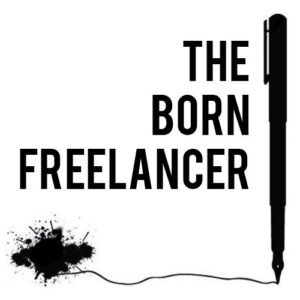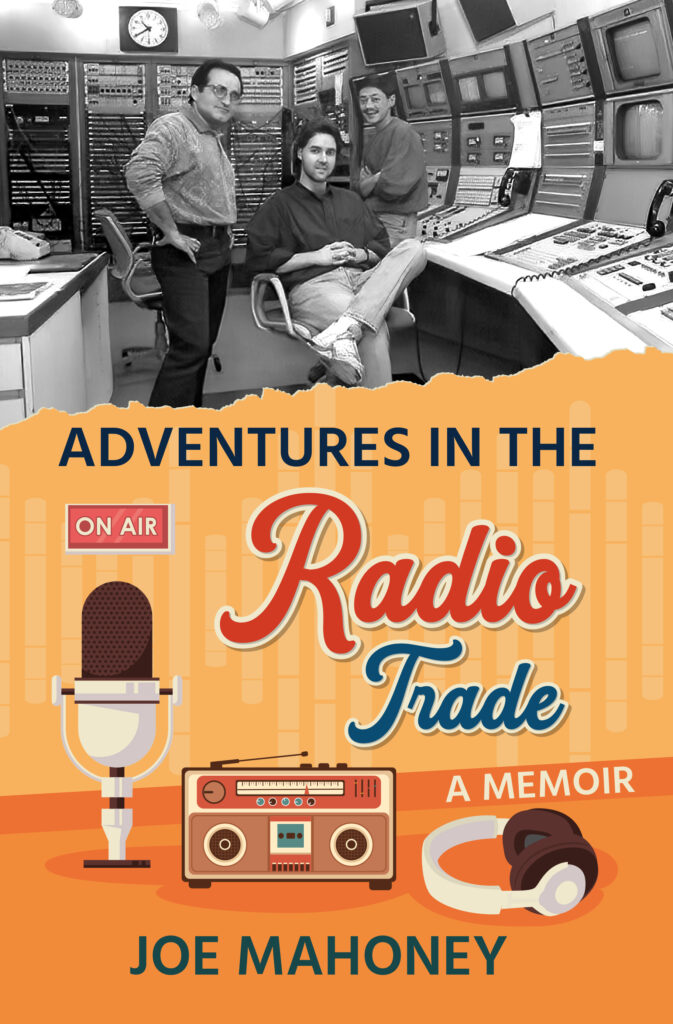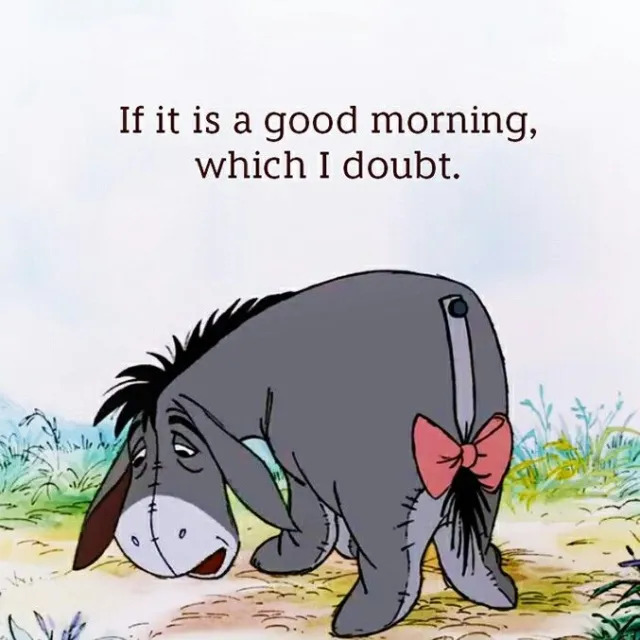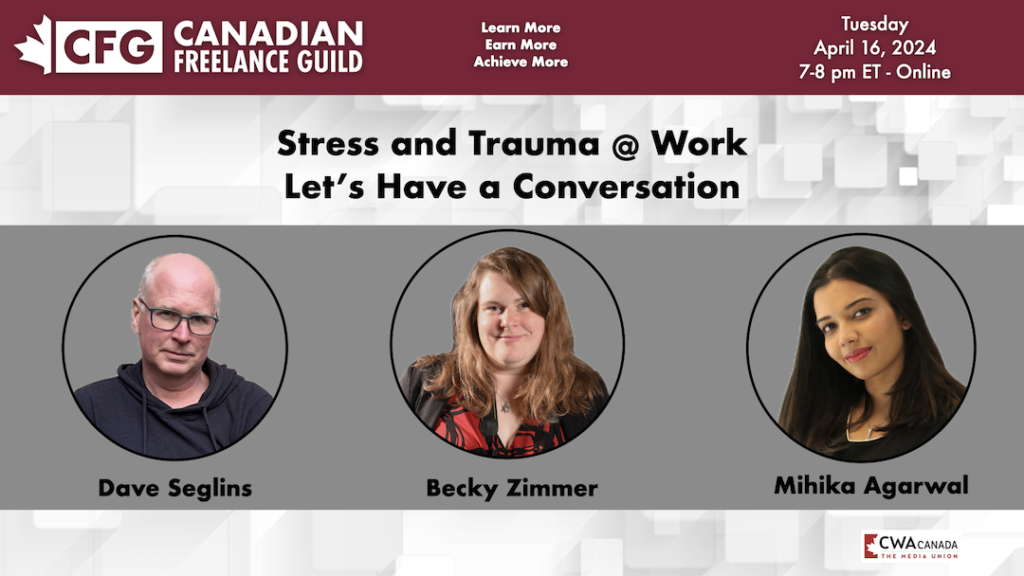4 tips for writing about me pages that work
This article about “about me” pages is written by Vanessa Chiasson, a freelance writer based in Ottawa who specializes in travel and human interest stories.

Do you have an “about me” page on your freelancing website? I bet you do.
Do you feel squirmy thinking about that page?
And do you feel you should update it, refresh it, make it less awkward, more dynamic or just…something?
I’m guessing that’s a “yes” too.
“About me” page stress is one of the most common complaints I hear from my fellow freelancers.
And it doesn’t matter what kind of work they do or how long they’ve been doing it. It’s just one of those things that’s constantly weighing on people’s minds. Writing a great “about me” IS important. But there’s something that most folks are doing wrong, and it has nothing to do with the actual writing.
What most people get wrong when they write their about me page
Here’s what most people get wrong: they treat their “about me” page as if the page itself is the goal.
Reality? The “about me” page is a task, an action item—something that needs doing to support a bigger goal.
What IS the goal of an “about me” page?
What, exactly, will that revamped “about me” page support?
Here’s an example. If a travel photographer is keen on securing more press trips, an “about me” page would be one of several items needed to boost their position as a dynamic, adventurous worker.
Another example. A freelancer keen to improve their confidence may view a swishy page as just one part of a more extensive set of efforts that allow them to put their best foot forward.
A third example. A writer eager to make a strong impression on editors might view polishing their “about me” page as one step towards becoming a go-to contributor.
Updating a page or crossing something off your list doesn’t matter if it’s not part of a bigger strategy or serving a higher goal. This sounds like a lofty order, but identifying the goal you’re fighting for makes action items, tasks, and chores much more manageable.
Next time you think about your “about me” page and chide yourself for not updating it, take a breather and ask yourself why it matters.
What do you want more than anything else?
What is your goal for this week, this quarter, and this year?
Now, ask yourself what that page can do to help make those things happen.
Practical tips and common questions about “about me” pages
Should you mention where you grew up or other aspects of your personal life?
If growing up in coastal British Columbia informs your reporting on fish habitat or sets the scene for your mystery novels, it’s well worth mentioning in your “about page” and bios.
But, as a general rule, there’s no need to talk about where you grew up, who your parents were, or what your family life is like now.
Here’s a cool example from the biography of bestselling author Dan Brown:
The son of a mathematics teacher and a church organist, Brown was raised on a prep school campus where he developed a fascination with the paradoxical interplay between science and religion. These themes eventually formed the backdrop for his books.
No wonder Brown went on to write The Da Vinci Code!
One thing to avoid on your “about me” page: Cliches like “Nahla loves spending time with her family.” That’s a given!
Instead, try this on for size: “Nahla loves hiking with her children and their adventures in Algonquin Park inspired her latest travel guide.”
Should I talk about past bylines and clients?
Absolutely! It’s fantastic that you have bylines with The Globe and Mail and worked with the country’s best-known museums. But you shouldn’t open with that. This isn’t about what you’ve done in the past. It’s about what you can do for clients and partners now.
Instead of saying, “Omar’s photography has been featured in the Toronto Star, National Geographic, and Chatelaine,” consider the following: “Omar specializes in macro-photography. He combines his technical skills with a passion for food to create innovative images for recipes, cookbooks and chefs.” The first version talks about who they’ve worked with in the past but the second version talks about who they help and what makes that help so remarkable.
Should I mention my academic degrees?
Sure, if they’re a big part of your work or you’re in a field that demands extra credibility, but it’s not necessary.
A science writer’s credibility benefits from a degree in nursing!
A videographer who often works at festivals can leverage their training in early childhood education to prove how sensitive they are to the needs of families.
However, just like past bylines, you don’t need to lead with this.
What do I do if I’m just starting out?
What matters most is knowing who you serve and why, not showing off all your accomplishments. Lean into the things that made you start freelancing.
Why did you start blogging, editing, or creating social media content? Did your career as an illustrator begin when working the night shift as a security guard and you started sketching to pass the time?
Author Kevin Kwan was a relatively new writer when he wrote Crazy Rich Asians. He leaned into his expat experience to enrich the story and his biography.
Kevin Kwan was born in Singapore and left when he was 11, living in the U.S. since then.
Your career is constantly growing, your “about me” page will reflect that. What works for you today may change significantly in three years or even just three months!
How can I make this process easier?
Collaborate with a friend!
Writing someone else’s page is often much easier than your own. Partner up with a buddy to write and edit each other’s work. Don’t hesitate to take inspiration from another freelancer’s “about me” page, but remember that your story and voice make all the difference in the world. Dan Brown and Kevin Kwan lean into their own experiences, and so should you!
Freelancer Organization Tips
by Robyn Roste

When I began freelancing things were straightforward. Someone would ask me for an article and I would write it. I’d write whenever I felt like it and I’d invoice when I remembered.
It sort of worked.
But when I decided I wanted to make a real go of freelancing, I realized I needed a more professional approach. The first step was getting organized.
For me, the benefits of being and staying organized have been remarkable. I am less stressed out, I get my work in on deadline, I’m in sync with my clients and I am able to do my best work.
It took a while to develop the systems and habits I needed to build the business I wanted, one I was proud of and felt good about, but it was worth the effort.
Here are six areas I’ve found key to being organized as a freelancer.
Look at how you use your time
If you’re in a constant state of panic, racing from one deadline to the next and feeling like you’re failing at everything, consider conducting a time audit. You don’t need to get into the minutiae (unless you want to), but do take an honest look at how your days are spent.
Read the rest of this post »
Support for freelancers growing as industry vets address growing concerns
This article on freelancing, journalism and mental health is written by Becky Zimmer who is based in Humboldt, Saskatchewan. She has experience in farm, community, small business and sports reporting.

We’re freelancers.
Some months we struggle to survive on coffee, sarcasm and rejection letters, while later making our entire year after two intense months of stress, interviews and writing on little sleep.
Any freelancer stuck in the pulls between financial insecurity, difficult subject matter and the stress and trauma of the job can understand how important their mental health is, but what can they do about addressing these issues?
Resilient, curious creatures can still need help
Speaking with Jane Hawkes, she wrapped it up in one succinct thought: “we’re resilient, curious creatures, but sometimes we need help.”
Whether reporting on heinous crimes, war and death, natural disasters, or facing the stress of working for ourselves, journalists are starting to take a stand: everyone deserves to seek and access help.
When Hawkes co-founded The Canadian Journalism Forum on Violence and Trauma with veteran reporter, Cliff Lonsdale, their focus was on the physical safety of journalists.
Now that discussions around mental health have become more commonplace, compared to 15 years ago, they have been able to take a different approach to treat the well-being of journalists as a hybrid issue of physical and physiological safety, she said.
People understand the risks and trauma of reporting from a war zone, but journalists at all levels face strains and stresses that need to be addressed.
We learned a lot from the COVID-19 pandemic, said Hawkes, when people were faced with numerous financial challenges with very little help available.
The Trauma Therapy Fund for freelance journalists in Canada is the brainchild of Dr. Anthony Feinstein, another Forum board member, but applications were a slow trickle when it was first announced, not the torrent that Hawkes was expecting. Speaking with freelance colleagues after the launch revealed there was some confusion on who the fund was designed for.
They said that (the fund) must be for people who cover war or conflict or do the really difficult stuff like very difficult court trials, etc. And I said nope…There’s no hierarchy in this. We take the view that journalism, at any level, can have an impact on you, especially when you also have the economic insecurity of being a freelancer.
There is no judgment on what people have been through, said Hawkes. Stories can accumulate, especially when a reporter doesn’t have the resources, time, or energy to deal with their mental health from one story to another. It doesn’t always have to be one big traumatic story that sends them to seek help.
Many people do nothing but cover negative stories. Separately, they may not have a huge impact, but over time, the drip, drip of it accumulates and you think I’m in trouble now because I’m not affected by this at all, what’s happening to me? Or, one more story and I can’t do this anymore.
For Dave Seglins, his own experiences at CBC has led him to create a trauma checklist, surveys and resources to help his colleagues in their worst moments.
While he was covering the story of Russell Williams, a Royal Canadian Air Force colonel who would eventually be found guilty of murder and sexual assault, his newsroom wasn’t very empathetic when he developed Post Traumatic Stress Disorder, he said. He eventually went back to work, but he didn’t fully understand what was going on with his mental health at the time.
“That experience in 2010 left me thinking a lot about the industry that we work in and how poorly we deal with people and how poorly we understand the potential risks of some of the things that we do report on,” said Seglins.
Working during the COVID-19 pandemic became another tipping point for Seglins.
Facing one difficult assignment on top of another, Seglins attempts to advocate for his own mental health were unsuccessful when he tried to say no to a historical murder case involving children. While he ended up reporting on the story anyway, the experience opened the door for a conversation about how journalists could be better supported in Canadian newsrooms.
They said this is the way it works, you don’t get to turn down an assignment. I said to them, actually, this is exactly how it works. I should feel safe enough to be able to put up my hand…I eventually came back to them and said let’s learn from this because we have to change this kind of approach.
Partnering with Matthew Pearson at Carleton University in Ottawa, Seglins created the Taking Care survey and webinar series to help journalists talk about their own mental health and what they need before, during, and after these stories are filed, or what they can do in times of stress or finding help.
After 25 years as an investigative and frontline reporter, Seglins says helping his colleagues as a “well-being champion” has been another joy of working as a journalist.
Join Hawkes and Seglin at the Canadian Freelancers Guild discussion on April 16 with the live webinar panel discussion, Stress and Trauma at Work: Let’s Have a Conversation.
12 ways to repurpose old content to create new content
This article about repurposing content is written by Vanessa Chiasson, a freelance writer based in Ottawa who specializes in travel and human interest stories.
If there’s one thing that freelancers know, it’s that you can pour your heart and soul into a project, and sometimes it just doesn’t work out.

Here are 12 ways to repurpose old content for profit and creativity
Not everything you craft is going to find a home. Brilliant stories will be rejected. Beautiful paragraphs get cut. Blog posts die on page three of Google. You can’t win them all, but you can recycle, reuse and repurpose.
Create a “from the vault” segment in your newsletter using an old, unloved blog post or photo
You get to highlight a “blast from the past” piece for your audience AND you have one section of your newsletter that essentially creates itself.
Create a newsletter “spotlight”
For instance, re-share all your recipes with red ingredients or chocolate as part of a Valentine’s Day spotlight.
Transform old blog posts, images, or videos and create an FAQ section on your website
Use the material to answer frequently asked questions about your professional services. It will be SEO-friendly and might reduce repetitive inquiries.
Create a roundup post
For example, if you have a collection of articles or videos about Atlantic Canada that aren’t getting much traffic, it’s time to repackage them. Create a roundup blog post that packages all those one-off pieces as a one-stop shop for information.
Take an old post off your blog, update it, and then have a friend post it on their site (with a lovely bio showcasing you as the author)
You, in turn, do the same for them. Now you both have fresh content that will reach a new audience, complete with valuable backlinks. (You can do the same thing with stories that just haven’t sold.)
Sell your underperforming blog stories
Just because the article on your website isn’t doing anything for you doesn’t mean you can’t take it down, freshen it up, and sell it to another site. Many publications want exclusive, just-for-them material, so make sure your draft has been thoroughly updated.
Create an e-book
Maybe those under-used interviews and research materials can be transformed into a mini-book. How about old articles you retain the rights to but can’t rehome? E-book!
Reuse old research material as new teaching material
People love to learn, and that desire is not limited by subject matter or style. Do you give presentations or tutorials? You can repurpose your research and create new teaching with it!
You can also use old research material to create videos for social media
Your how-to instructions can become mini video lessons. Your funny stories will come alive when people hear you tell them in your voice!
Tweak an old story draft to give it a new direction
For instance, an article about what to see and do in Paris (with accompanying restaurant suggestions) might resonate more with editors if it was an article on where to eat in Paris (with accompanying tips on what to see and do).
Use that old story, photo series, or interview to inspire a one-act play, a novella, or a script
Why not? When was the last time you took a creative flight of fancy?
Ask AI tools like ChatGPT to suggest ideas
We often don’t see the potential in old material because we are used to considering it in one specific way. Take a step back and have things analyzed through an unemotional lens. If you aren’t comfortable with AI tools, consider brainstorming ideas with a colleague.
The Born Freelancer Speaks Out on Speechwriting
This series of posts by the Born Freelancer shares personal experiences and thoughts on issues relevant to freelancers. Have something to add to the conversation? We’d love to hear from you in the comments.

Looking back over my 150 posts, there’s one potential profitable revenue stream for freelance writers that I’ve not yet discussed:
Speechwriting
I won’t presume to tell you how to write a good speech. If this interests you, there are relevant books at your public library as well as online resources and continuing education courses available through your local community college.
What I will do today is present some of my top tips and thoughts based upon my own experiences. I hope they will provide you with enough motivation to pursue the subject more thoroughly elsewhere.
Who needs a speech?
Who needs a speech? Everybody (sooner or later)!
Think of any business, organization or public individual. At some time they will need to make a speech. Maybe live, maybe on social media. A select few will insist upon writing their own. However, as most people find speech-making scarier than the prospect of death, you can imagine that writing their own speech is a task most will wish to delegate.
That’s good news for you.
The trick for a successful speechwriter is to create a recurring relationship with clients who have ongoing speechwriting needs. The best paying, corporate clients, will be able to afford the best speechwriters and consequently the competition will be fierce. But there will be many other potential clients, from charities and non-profits to local politicians and wedding planners, who may have less expansive budgets but who could remain a constant revenue stream once you have proven your talents and reliability.
Getting the speechwriting job
Getting started is always the hardest part. Once established, word of mouth may become your best means of promotion. But getting those first jobs is tough.
Determine who you might like to work for. Choose a company or individual with whom you can identify. Contact them directly and ask if they need speeches. If approaching a company, you should try to speak to the person in charge of speech-writing. If there is no such person, try the promotion or publicity director’s office. Look at smaller start-ups struggling to establish themselves or causes that you find compelling but that may be battling to find their public voice.
Get to know your client
In order to write an effective speech you will need to get to know your client. Well, superficially at least. Your speech will become their words and so you will be writing in effect as if you are them. What are their speech mannerisms? What is their general demeanour? Your speech will need to be constructed in-line with their established characteristics and mannerisms. Once upon a time this required in-person meetings, but today this can be more easily achieved using Zoom or similar. Naturally, you will build the time you anticipate spending in such preparation into your fee.
Do I have to believe what my client believes?
The old-school professional would probably say no. Wave a cheque big enough in front of the seasoned speechwriter and they will write whatever their client wishes. Personally, I would call that a misappropriation of their talent and would counsel only to write for what you believe in or could believe in. It should make the speech more credible and genuine if you can write it from a simpatico predisposition. (Of course, if who or what you believe in fails to enhance the human condition please feel free to ignore my advice.)
Using humour in speeches
Nothing is more important than the use of humour in a speech and nothing is more misused or abused. Humour in speeches can be used to make the speaker more relatable-to. This will help to make whatever message they have more acceptable. It can be used to disarm a potentially hostile audience, which is why most speeches open with it. If you can get a crowd to laugh you’ve already made friends. But if the style of humour is neither appropriate for your client nor to their audience, nor to the occasion, it can lead to disaster. I can recall a speech delivered by a public official who had somehow decided that the use of inappropriate street slang would amuse their audience. It did not, and the joke ended up going viral culminating with that official being forced out of office. Humour must be used judiciously unless circumstances warrant otherwise, such as writing for a professional comedian, which is a wholly different proposition worthy of separate article.
Specialities
You can be a general speechwriter and become known for your ability to turn a phrase for any occasion. But if you have a specialized knowledge already why not concentrate on speechwriting in that area. It will make your marketing more targeted. Select clients you approach will be impressed with your expertise. If you are passionate and informed about the environment, for example, why not concentrate on those issues and work for clients focused on them. They may even become repeat clients. Your subsequent branding will certainly distinguish you amidst a multitude of speechwriters offering more general services.
What to charge as a speechwriter
Always the freelancer’s biggest question. What do I charge? That’s a tough one to answer. You will probably need to establish your fees on a sliding scale. Major corporations can usually afford bigger fees. Smaller charities or individuals may not be able to pay top tier prices. Do some research online, ask around your network. Check with the relevant unions or guilds. You can always offer discounts. But it’s almost impossible to increase your fee once you’ve stated it. Pro tip: that’s why you can also offer add-ons.
Add-ons
Add-ons allow you to customize a client’s package by charging for additional services you may offer as the work continues. For example, one such add-on service could be coaching. One of your responsibilities as a speechwriter (and a good way of insuring repeat business) is to instil confidence in your client’s ability to delver your speech. Most people hate the idea of speechmaking. You will become a much appreciated (and well paid!) ally if you can give them the confidence they require to really “sell” their speech.
The takeaway
I once wrote speeches for an independent candidate in an election. This semi-professional comedian offered policies that were highly idealistic but wholly unrealistic. They did so with a super-abundance of good-natured humour mocking the traditional parties and without any hope of actually getting elected. At the time I shared their dissatisfaction with the status quo and wanted to support them. So I wrote speeches satirizing the follies of mainstream political rhetoric. I accompanied my client from rally to rally and from TV interviews to candidates’ debates. I learned much about the “behind the scenes” political process. Had I been more of a political animal it might have become a profitable revenue stream. In the end my candidate won close to a hundred votes, cast in peaceful democratic protest, with my speeches having played their part.
It was a powerful reminder to me that words (written even in jest) can move people to take action, for good or ill.
We writers should always be aware of such moral responsibility. No more so than when putting our words into the mouths of others.
Webinar: Stress and Trauma at Work: Let’s Have a Conversation
The impact that stress, trauma and violence can take on our mental health obviously applies to journalists, but also to many other freelancers juggling precarious employment.
Stress, trauma and violence take a toll on our mental and physical health.
Join us for a conversation with working journalists to discuss ways to deal with these issues.
Our Presenters
Dave Seglins, with the CBC and the Canadian Journalism Forum on Violence and Trauma, will tell us about developing and implementing best practices to deal with stress, trauma and even violence in the workplace.
Becky Zimmer has been a community news reporter and editor in Saskatchewan for nearly a decade, covering everything from community events, agriculture and rural issues to civic politics, sports, arts and entertainment in a variety of roles. She had a front row seat to how tragedy can impact a small community newsroom.
Mihika Agarwal writes about digital culture, the South Asian diaspora, mental health, film and television. Her work has appeared in a range of cultural publications in Canada, the United States and India including The New York Times, The Georgia Straight, Harper’s Bazaar and more.
Stress and Trauma at Work: Let’s Have a Conversation
- Online: Tuesday, April 16, 2024
- 7 p.m. to 8 p.m. Eastern Time
- $5 (there are no discounts for this event)
You can register for this webinar right here.
Learn more about the cost and benefits of membership in the CFG on this webpage.
The link to the Zoom webinar will be sent to you via email about half an hour before the start time.
Please check your spam or junk folders if you can’t find the email, and contact organizer@canadianfreelanceguild.ca if you haven’t received the link 10 minutes before the scheduled start time. This webinar will be recorded and posted to the CFG Video-On-Demand site. Once posted, all paid registrants will receive a link and instructions on how to view.
Finding Better Clients Through Positioning
by Robyn Roste

Last year was a good freelance year for me, but by the fourth quarter I was feeling spread thin.
In theory I knew what I needed—fewer, higher paying clients—but I was tired of guessing and muddling my way through. I wanted someone to draw me a road map. In December, I hired a coach to help me through the process.
My coach told me the answer to finding better clients is through stronger positioning.
Positioning is how you appear in your potential client’s mind. The secret to strong positioning is getting clear on what you do, who you serve and why you’re different.
My coach broke positioning into four categories for me to think through and work out: who I best serve (my ideal client/market), what makes me different in the eyes of my ideal client/target market, why that difference matters and what I do.
1. Target Audience
Working the side-hustle life as a freelancer
This article on freelancing as a side hustle is written by Becky Zimmer who is based in Humboldt, Saskatchewan. She has experience in farm, community, small business and sports reporting.

Side hustles have been all the rage over the last few years, especially since the COVID-19 pandemic. As inflation continues to rise, more and more people are finding ways to supplement full time work with casual jobs on the side.
According to H&R Block, 28 per cent of Canadians reported a secondary job to boost their income in 2023—a jump from 13 per cent in 2022—especially since 85 per cent of Canadians are concerned that their income isn’t keeping up with inflation.
A gig economy is nothing new. My Facebook feed has always been full of mom friends selling Tuperware or makeup to put away a little bit of spending money or to start a savings fund for their kids.
Search side hustles or gig economy on Google and it is easy to be bombarded with lists of the best bang-for-your-buck, low-pressure jobs that will provide supplementary income
And what topped Forbes’ list? Freelancing.
Freelancing is a tried-and-true way to earn extra money and deserves a top spot on any list of easy side hustle ideas. Freelancers deliver work on a per-project basis for one or more clients and you can schedule it in your spare time. Freelance graphic designers, writers, editors and website developers are in high demand, and other fields offer freelance opportunities as well. Skilled mechanics, trained bookkeepers, video editors, interior decorators and even licensed real estate agents can find flexible project-based work within their skill sets. (Forbes Advisor)
So what happens when freelancers need a side hustle?
Like most freelancers, Canadian Freelance Guild member Merle Rosenstein sets the amount of money she wants to earn in a year. Seasonal retail jobs, like working as a cashier at an LCBO, have not only supplemented that grand total she’s shooting for but has also helped her learn about wines and spirits, information she could use for future articles. With a love of knitting and crafting, she is also considering Michael’s, and there would be plenty of benefits to her work as a travel writer if she gets an upcoming gig as a Toronto-based tour guide. The 12-hour days at the polls are a trial but Elections Canada and provincial branches also pay well for a day’s worth of work, she said.
While there are plenty of jobs available that offer both financial and professional gains, Rosenstein said she is happy to have something else on her plate so she’s not doing the same task day in, day out.
Your mind is on something else, it’s not always on the same thing. If you like variety, then I think that’s a good thing to do.
When it comes to picking a side hustle that works for her, Rosenstein said she has her priorities and jobs that give her ample time to focus on her work writing about travel and positive aging.
Spending long days at my home office, there were days when I felt completely stagnant, restless, and stir-crazy. Hearing about a minimum wage barista job at my favourite coffee shop, the hands-on, customer-centred job sounded like the perfect temporary escape.
At that time, my priority was finding some work time outside my office, however, my work as a freelance agricultural journalist started to suffer no matter how much I liked the job. Shifts started getting in the way of deadlines and potential interview times, so after eight months there was nothing else to do but quit and refocus my limited time and energy back on journalism.
Rosenstein cannot see herself going back to full-time employment, but with short term and seasonal work, she can try new things to see if it works with her freelance lifestyle.
“It’s OK if it’s shorter term,” she said, “because then I can decide if I like it. Sometimes it’s not a bad idea to do something with an end, because then you’re just testing it out.”
There are always going to be advantages and disadvantages to any side hustle, said Rosenstein, especially when travel writers need both time and money to go on trips and gather material.
The biggest driver for quitting as a barista was actually the discovery of a better side hustle; teaching ESL.
Getting the teaching certificate through a University of Saskatchewan program, I eventually wanted to use it as another mode of traveling for work. Since the local community college had some positions open, I am gaining some valuable experience at a job that pays significantly better than minimum wage, my students are amazing, and I’m gaining valuable communication skills in the process.
Not only that, but all the money made is going into a travel fund for a trip to Switzerland in August.
Whether it’s speaking engagements, offering lessons in a specific area of expertise, or turning a hobby into a job, Rosenstein sees endless possibilities for her own side hustles.
With mad FOMO (fear of missing out), ADHD, and money anxiety, I found it hard to accept that I couldn’t do all the side hustles that crossed my path. Only I know how much I can handle, so I try to pick and choose wisely. I have nailed down my priorities in the back of my mind, whether that is ensuring I have some money in the bank, needing to prioritize specific times in the day to write, or just wanting to try something new.
The best way to do it is to weigh the options and go from there.
The Born Freelancer Talks with Joe Mahoney, Author of Adventures in the Radio Trade
This series of posts by the Born Freelancer shares personal experiences and thoughts on issues relevant to freelancers. Have something to add to the conversation? We’d love to hear from you in the comments.

Joe Mahoney has seen both sides of the freelancing paradigm.
As a CBC Radio employee, engaged in diverse and demanding positions including management, he saw a multitude of freelancers come and go. Recently retired after 35 years with the CBC, today Mahoney faces a new series of challenges as a freelance or self-employed writer, publisher and podcaster.
The Born Freelancer Talks with Joe Mahoney, author of Adventures in the Radio Trade
The Born Freelancer: Hello Joe! Welcome to the world of freelancing. How’s it going?
Joe Mahoney: I’m focusing on my writing career, which I’ve always wanted to do. I love having the flexibility and ability to do that. My mornings are no longer rushed. I have time to walk the dog. There are things that need to get done outside of work that I now have time to do without worrying about an employer. So yes, I do prefer being self-employed. The money isn’t as good…yet…but I’m very fortunate in that I have a pension and a partner who works. And my plan is for the money to get better. If it doesn’t, it won’t be for the lack of effort.
The Born Freelancer: What mistakes do you think you made starting out in your new self-employed career?
Joe Mahoney: Gee, where do I begin? First off, I don’t beat myself up over mistakes. They’re all part of the learning process. I may have made a mistake incorporating my company, Donovan Street Press Inc. It’s a little pricey around income tax time. I’m told corporate tax is challenging to do yourself so I’ve gone with an accountant, which is a greater drain on my self-employed finances than I’d like to see. But whether it’s really a mistake or not remains to be seen.
The Born Freelancer: Any mistakes regarding writing and publishing specifically?
Joe Mahoney: It’s easy to spend way too much money advertising and promoting your work. The problem is you don’t know what works and what doesn’t work when you first start out, so the temptation to throw money at Amazon or Facebook Ads is too great. And you wind up spending more than you make.
The Born Freelancer: What revenue streams are you now pursuing or do you plan to pursue in the future?
Joe Mahoney: My main priority is my writing career. I released a book the day after I retired, Adventures in the Radio Trade. So that part of my plan was a success (though it’s yet to make its money back). I’m trying to finish another novel. It’s in four acts, like the Japanese Kishōtenketsu story structure (introduction, development, twist, conclusion). The first three acts are finished, I just have to finish the fourth.

I’m also co-hosting and producing a podcast called Re-Creative with my friend and fellow writer Mark A. Rayner. It doesn’t generate any revenue (so far). The idea was that it would increase our profile and help book sales. Unfortunately, although we enjoy the podcast and plan to continue, it has not boosted book sales appreciably, at least as far as we can tell.
I’m exploring expanding Donovan Street Press Inc., seriously considering publishing books other than my own, as well as producing more podcasts. I’ve prepared a business plan to this end and am talking to a few people. That and my own writing are my two main pursuits at the moment.
The Born Freelancer: Full disclosure: This reporter paid for and thoroughly enjoyed a copy of your memoir of life “behind the scenes” at CBC Radio. I can highly recommend it. How did it come about?
Joe Mahoney: Thank you, glad you enjoyed Adventures in the Radio Trade! I’ve always been in the habit of writing down anything interesting that happened to me. A lot of interesting stuff has happened to me at the CBC, and it all got written down. When blogs became a thing, a lot (not all, but a lot) of that material wound up in a blog. One day a friend, Karina Bates, suggested I turn it into a book, so I did, digging up old notes, and expanding on existing material.
The Born Freelancer: But why self-publish?
Joe Mahoney: I decided to self-publish it because after putting together and publishing both my own collection of short stories (Other Times and Places) and my father’s collection (The Deer Yard and Other Stories) I knew how. Also, I had learned that when other people publish your stuff, through no fault of their own but simply the exigencies of keeping a publishing company afloat, everyone else gets the lion share of the profits (of course, they assume all the risk up front). And after having the rights to my first novel, A Time and a Place, revert to me, I discovered that I REALLY LIKE having the rights to my own intellectual property. Plus, I knew that because I’m basically a nobody, I suspected that no publishing company would be interested in Adventures in the Radio Trade anyway. All that and the fact that by publishing it myself, I have complete creative control. I’m not averse to having someone else publish future work of mine, but I don’t regret publishing Adventures in the Radio Trade myself.
The Born Freelancer: What about the basic process itself?
Joe Mahoney: The process was time consuming but pretty straight forward. Write it, create the index, hire a book designer/cover artist, let them do their thing, upload the files to the distributors of your choice, acquire author copies, attempt to sell it, try not to lose your shirt advertising it. Try to figure out how to turn it from an expensive hobby into something actually profitable. Still working on that last part.
The Born Freelancer: Let’s talk about creativity in general. What inspires you? How do you keep your creativity alive?
Joe Mahoney: I just keep trying to do creative things. I write. I make music (though not as much as I’d like). I make podcasts. I’ve made videos. I do it because it’s fun. I do the business related stuff, like tracking income versus expenses and that sort of thing, and I try to do it properly, but I also try to get through it as soon as possible so that I can get back to the fun stuff, the creative stuff. You will notice that I’m answering your questions the same night I got them because:
- I enjoy answering them but also because,
- it will be done, and tomorrow morning I can just get up and write, without anything else hanging over my head. I mean, other than laundry, and walking the dog, and making meals, and so on
The Born Freelancer: Which sounds like an ideal segue! So how do you balance your professional and personal lives?
Joe Mahoney: I practise the three-legged stool school of balance. The three legs are: work, family, hobbies. Without any one of those, the stool falls over. When I work, I focus on work. When I family, I focus on family. When I hobby, I focus on that. My hobby used to be writing. Now that’s work. So my hobbies become music and karate. When it’s time to do family stuff, I give them all my attention. Ultimately, they’re the most important. And I’ve always tried to practise good mental hygiene. Think positive thoughts. I have no time for negativity. Sure, I succumb to it from time to time, but am always aware that I have to bust out of it. My family and I always think of Eeyore. We like Eeyore, but we don’t want to be Eeyores. If we catch someone Eeyoring, we say no Eeyoring!

The Born Freelancer: Finally, Joe, what new projects are you working on right now or do you hope to work on in the near future?
Joe Mahoney: I’m helping a couple of friends polish up their novels for publication. And I just finished mastering a CD for a talented harpist friend of mine. That was a lot of fun. My own big project these days is my novel, Captain’s Away. That’s my main focus right now, to get it written and out into the world, either traditionally published or otherwise. Then I will focus on growing Donovan Street Press Inc.
Many thanks to Joe Mahoney for answering our questions so fully and promptly.
Joe’s website contains information on how to order any of his books—as well as some of the funniest mock reviews to be found on any author’s website.
Webinar: Empowering You! CFG Experts Panel on Tax Time 2024
It’s that time again: getting ready to file our annual tax returns. What’s changed? What qualifies for expenses? How can you get through this without setting your hair on fire?

Our CFG finance experts panel is here to help.
Our Presenters
Dr. Nadine Robinson is back again. She began her career as an accountant at Deliotte, and believes in spending on things that can’t be taken from you, like travel, life-long learning, and life experiences.
Michelle Waitzman also returns. She edited for the Canadian Tax Foundation for eight years and uses webinars and conference presentations to teach freelancers about HST/GST.
And joining us for the first time, Sandy Yong, personal finance writer, TEDx and keynote speaker, who’s the award-winning author of The Money Master.
Come with your questions and we’ll do our best to point you in the right direction.
Empowering You!! Our CFG Experts Panel is Here to Help You Navigate Tax Time
- Online: Tuesday, February 27, 2024
- 6 p.m. to 7 p.m. Eastern Time
- $5 for members
- $20 for non-members
You can register for this webinar right here.
Learn more about the cost and benefits of membership in the CFG on this webpage.
The link to the Zoom webinar will be sent to you via email about half an hour before the start time.
Please check your spam or junk folders if you can’t find the email, and contact organizer@canadianfreelanceguild.ca if you haven’t received the link 10 minutes before the scheduled start time. This webinar will be recorded and posted to the CFG Video-On-Demand site. Once posted, all paid registrants will receive a link and instructions on how to view.




